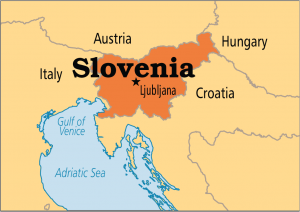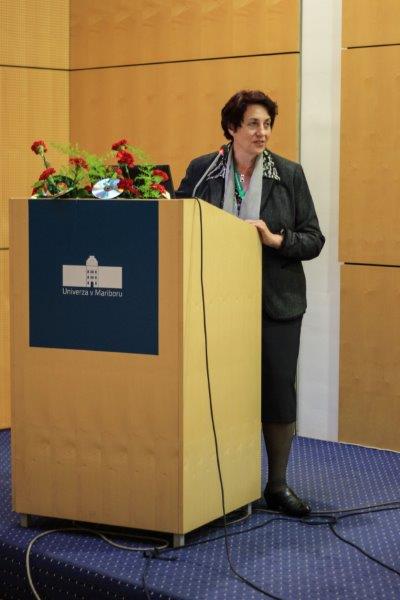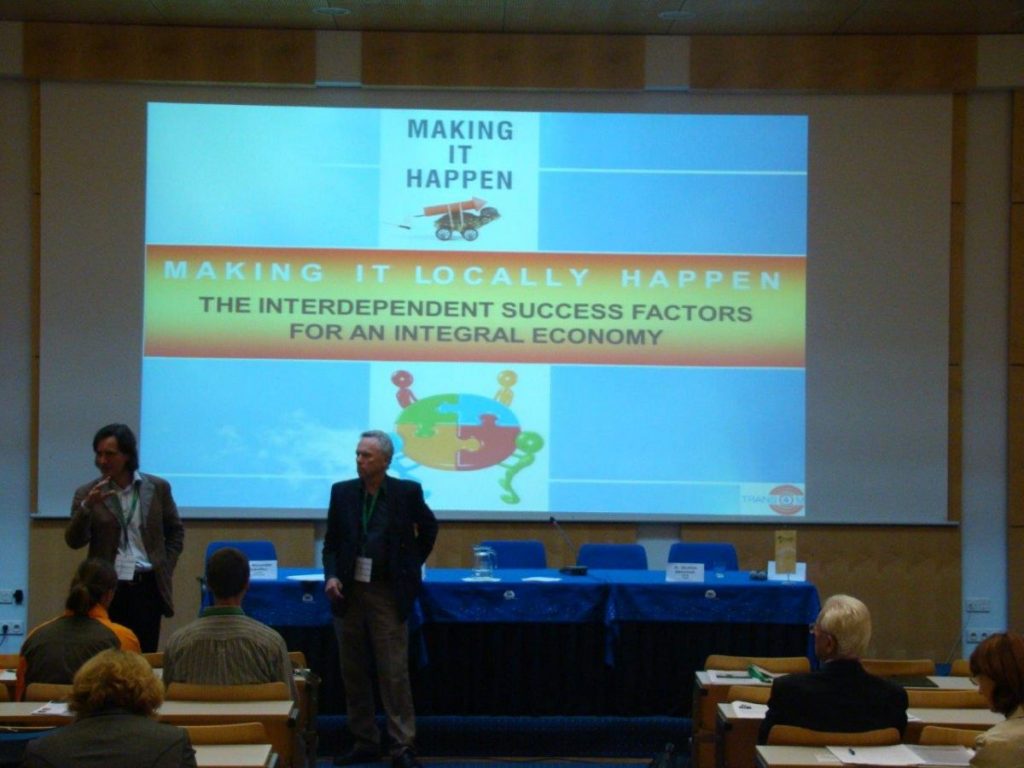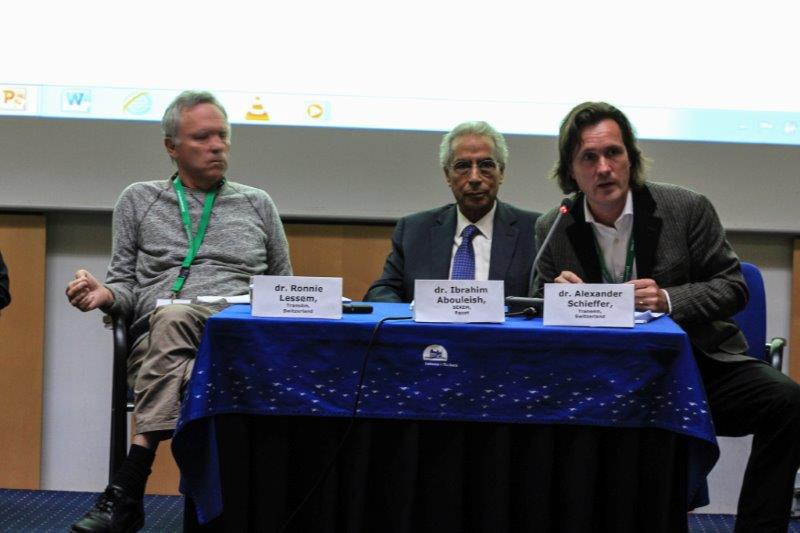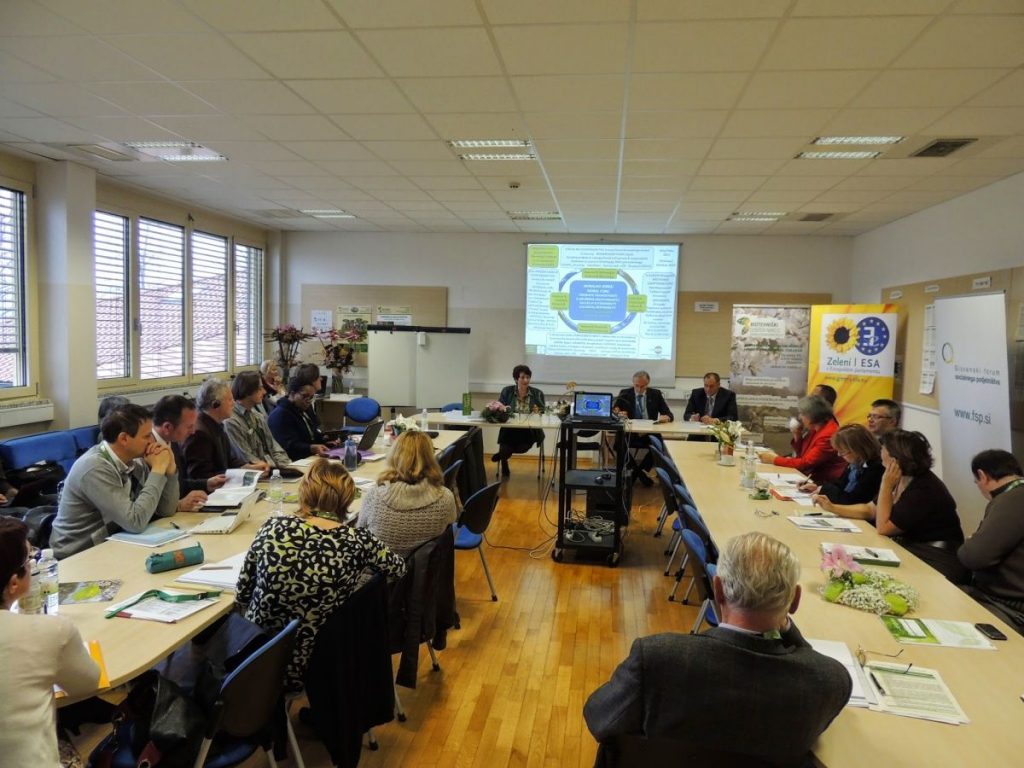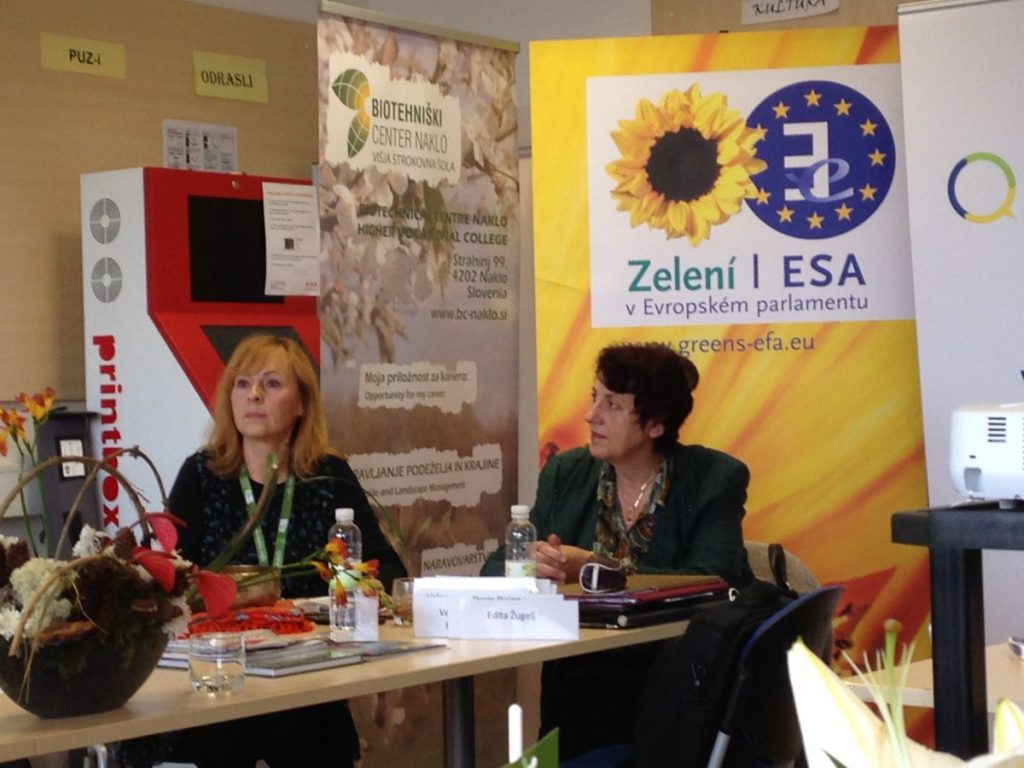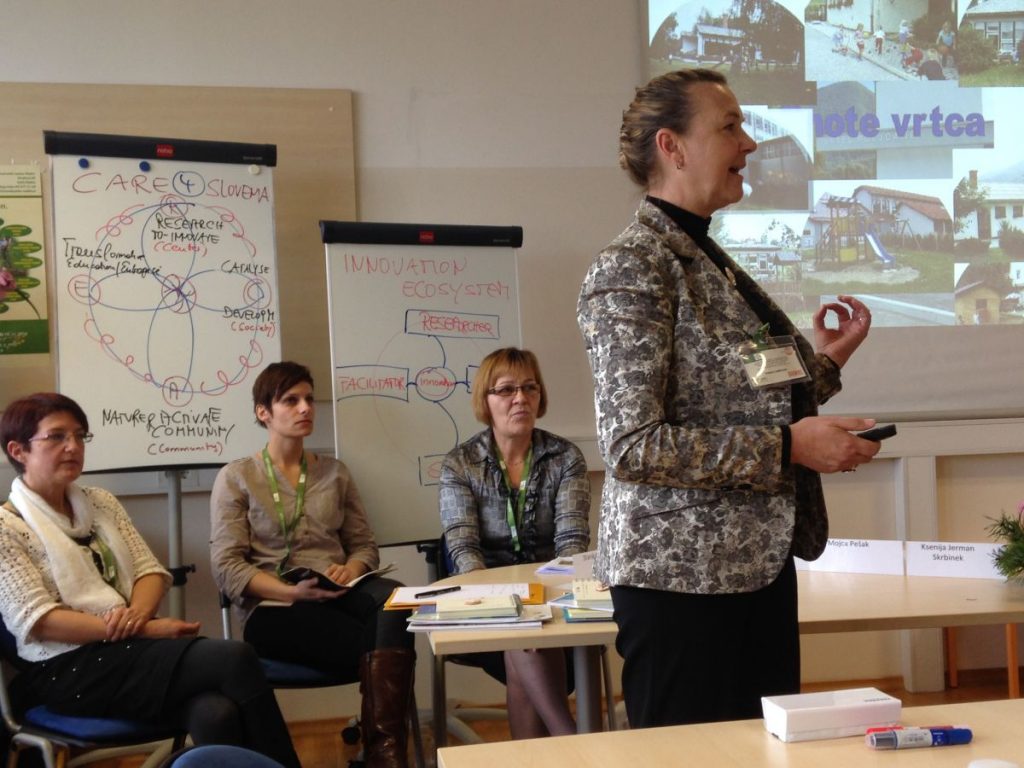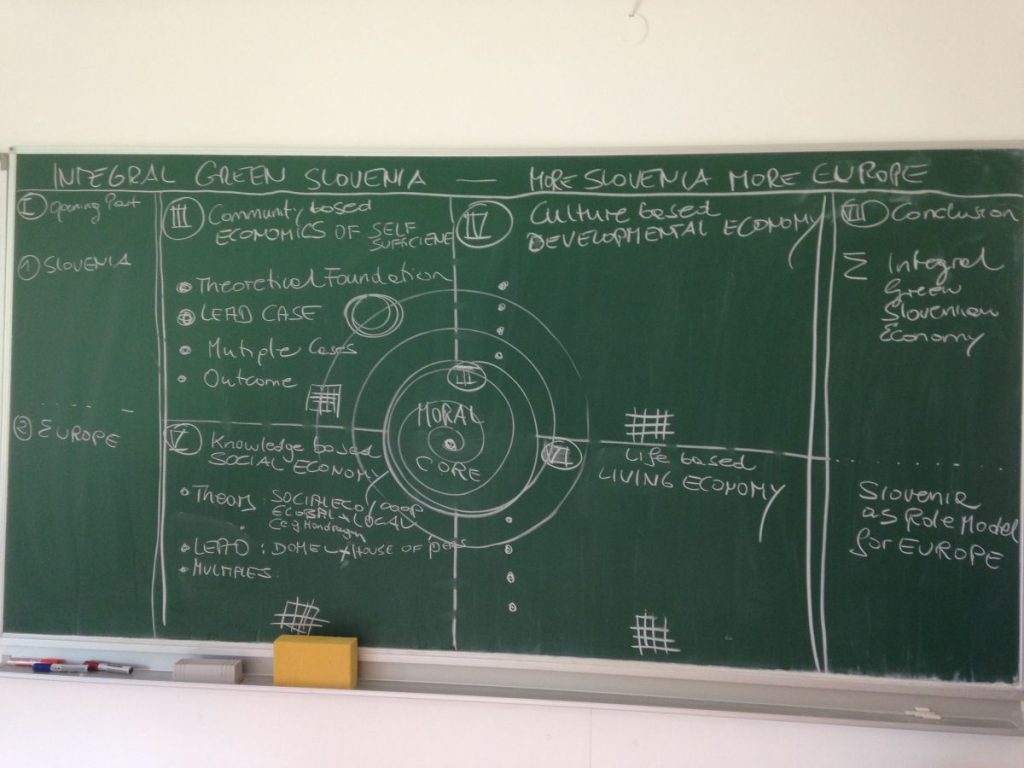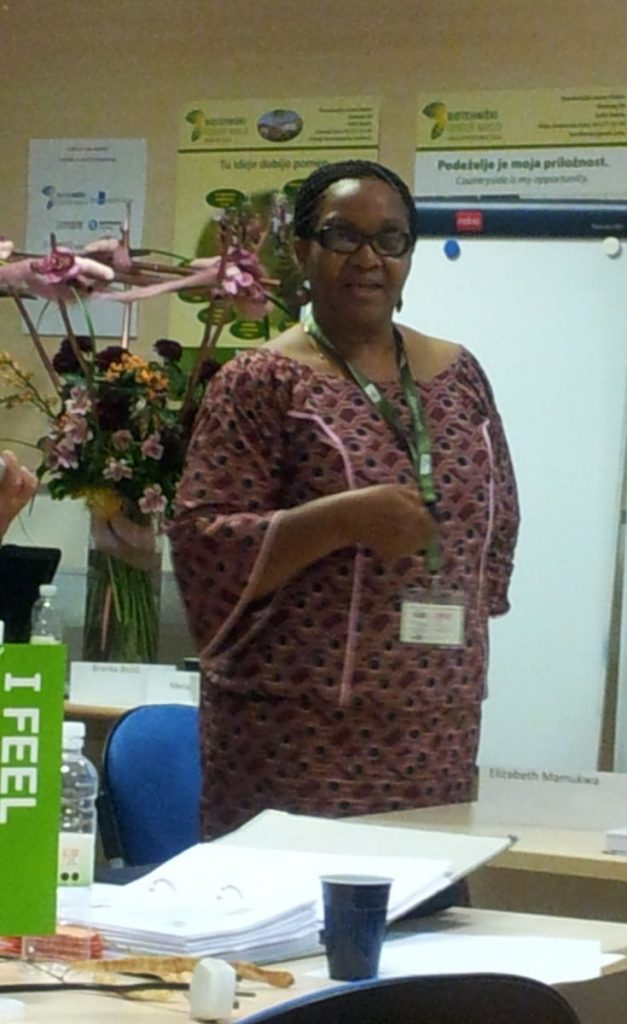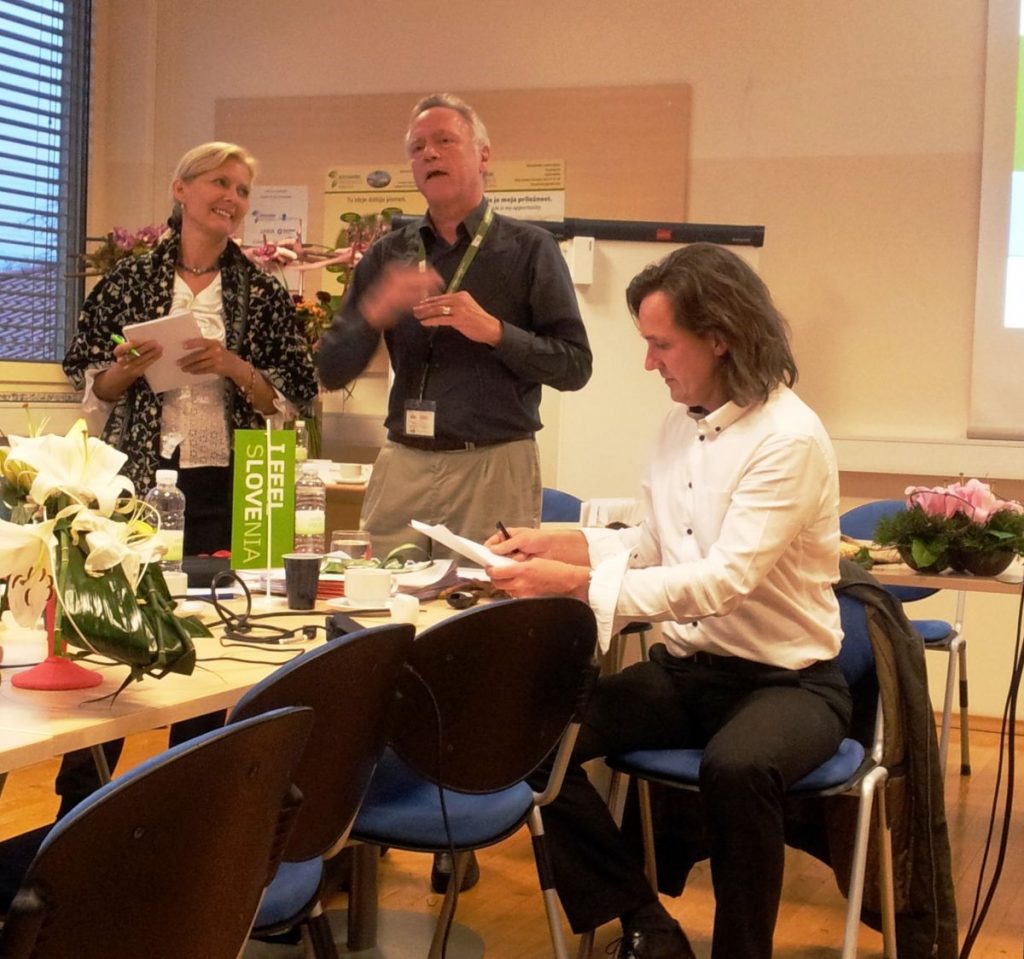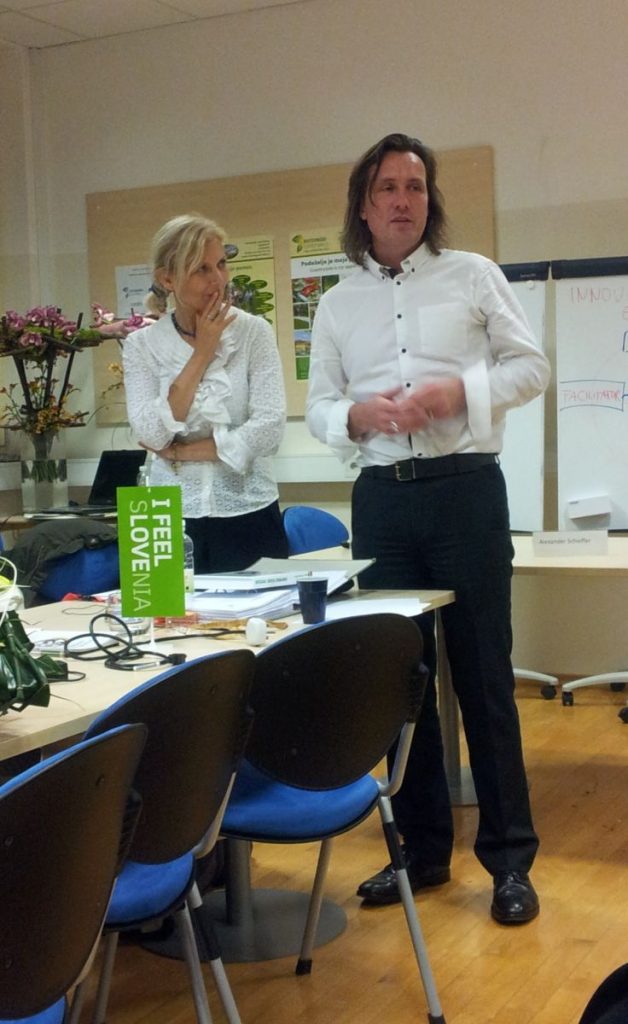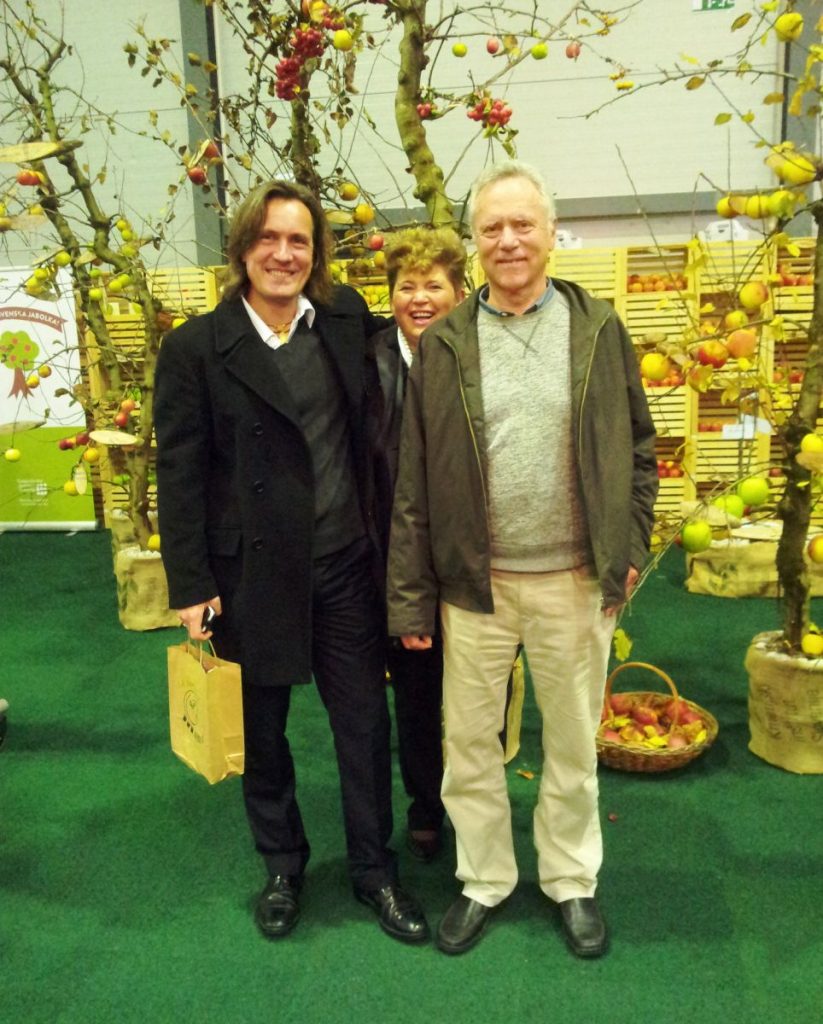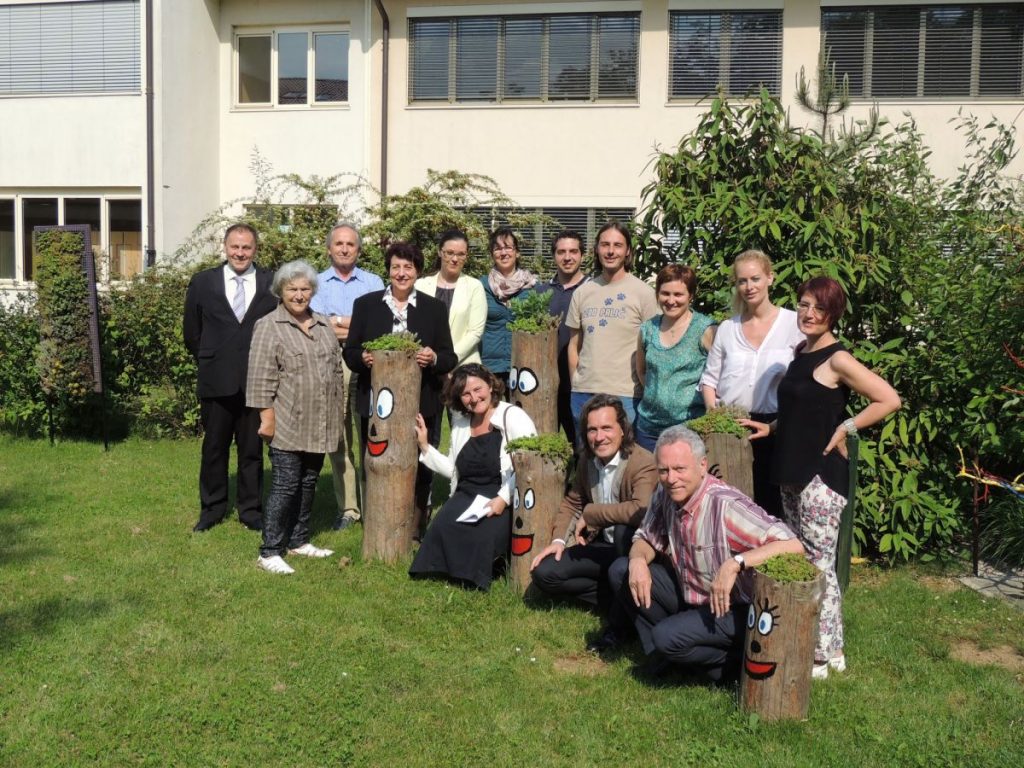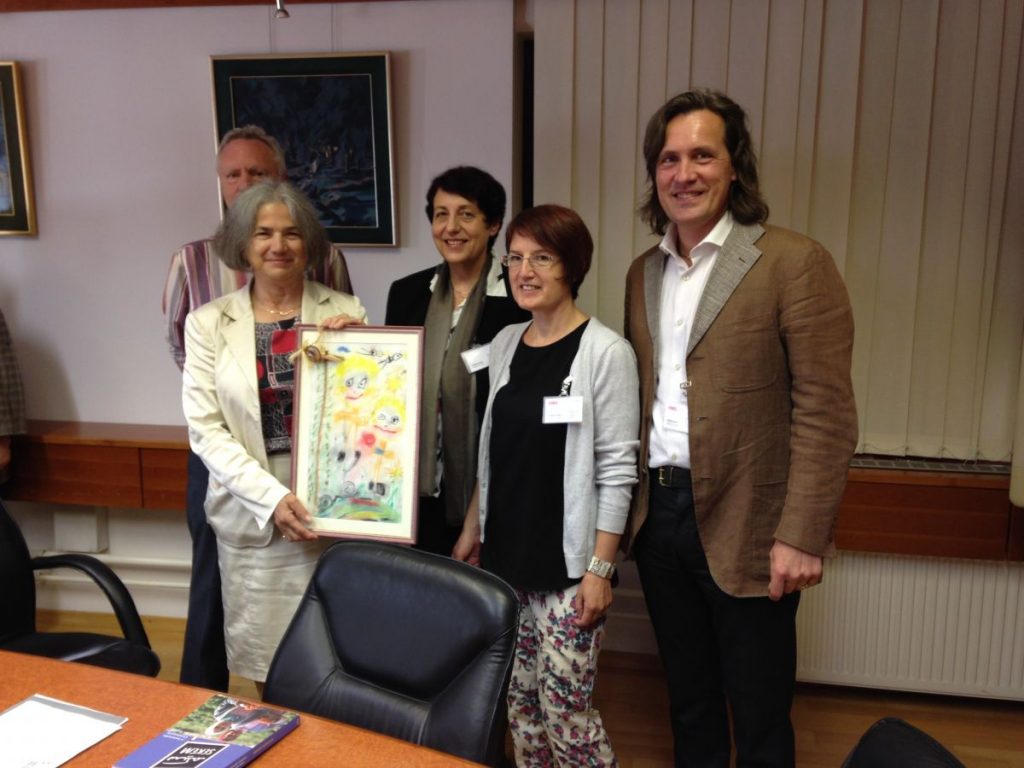A full account of our collective work in Slovenia is provided in Integral Green Slovenia: A Social, Knowledge- and Value-Based Economy and Society at the Heart of Europe
At this stage, we introduce a couple of selected cases to provide an initial understanding of the integral economic process that we are co-facilitating and that is well on its way in Slovenia.
From Community-Based Self-Sufficiency to Sustainable Tourism: Example = The Case of Solčavsko
The case of the Alpine region Solčavsko demonstrates, how a commitment to nature and tradition as its moral core, and the alignment of the local population under common goals released the sustainable development potential of an entire region. In this process, the institutionalisation of its development approach in the form of a local development centre, Center Rinka, was crucial. Working together with the Slovenian Citizen Initiative for an Integral Green Economy and Society further helped Solčavsko not only to explain its own unique development model, but also to share it increasingly with the wider region and society as a whole. Study Circles in that context, as a national project, turned out to be a significant development tool in Slovenian rural areas. In this chapter, the authors – a leading Slovenian expert on study circles and the director of an internationally rewarded local development centre – illustrate how the combination of study circles and regional development can be an important key in the development of an integral economy and society.
Culture Based Development: Example = The Heart of Slovenia
The Heart of Slovenia is a new region and a “region of the future” in the hinterland of the Slovenian capital that has become, in the seven years of its existence, an inspiring model for regional renewal, aligned with the key success factors for bringing forth an integral economy. With its interconnected focus on sustainable entrepreneurship, culture- and nature-based tourism, as well as regional self-sufficiency and taking the actual needs of the local population as its starting point, the Heart of Slovenia has made maximum use of EU policies, processes and funds by smartly integrating them. It draws on and contributes to a wealth of local, regional, national and European networks. A Development Centre of the Heart of Slovenia acts as the initiating and coordinating “organ” of the Heart of Slovenia, and has over time developed a strategic development model, giving equal attention to people, development areas, values and resources and synergistically intertwining the main areas of life and work.
Knowledge and Value Based Cooperative Economy: Example = The Case of Domel
Traditional forms of resource management via the commons and cooperatives represent today in Slovenia a valuable inspiration and potential for social innovation towards a social knowledge-based economy. When adapted to modern business practices and integrated with scientific research and technical innovation e.g. in metal and wood industry and craftsmanship – as embodied in the case of Domel – we can witness European and even global breakthroughs. Building on their cultural heritage and the rich diversity of cultural influences, and at the same time respecting their natural heritage, they often emerge in remote valleys drawing on longstanding technological traditions, driven by the need to provide work places for their local community. With co-ownership and co-management of employees they live out their values of social responsibility. So Domel, one of the country’s most prominent high-tech manufacturers, expresses such values in a strong connection and integration with the surrounding community, caring for its weakest members and respecting its natural heritage.
Transforming Enterprise and Education – Sustainable Development via a Living Life-based Economy: Example = The Case of BC Naklo
Biotechnical Centre (BC) Naklo is not only one of the country’s most reputable secondary and tertiary education providers with a particular strong reputation with regards to education for sustainable development, the Centre has also been one of the key protagonists of Integral Green Slovenia, from the very beginning of this movement. The Centre has developed a comprehensive integral perspective, incorporating all its highly diverse fields of activities, and Trans4m’s integral CARE process that supports them in aligning transformative education (E), innovation driven research (R), catalysation of awareness in community and society (C), and activism based on community-based learning (A), altogether towards sustainable development.
FOLLOW LATEST DEVELOPMENT OF INTEGRAL GREEN SLOVENIA
- 31. January 2017: Post on 3rd International Conference for an Integral Green Slovenia, Europe and Wider World
- Dr Darja Piciga - At the Opening of the First International Integral Green Slovenia Conference in Maribor in 2013
- Introducing Integral Economics to Slovenia
- Panel Discussion, including Sekem's Founder Dr. Ibrahim Abouleish
- 2nd International Conference for an Integral Green Slovenia
- Intensive Interaction with National and International Speakers and Participants
- Dr. Darja Picga and Edita Zugelj
- Introducing the Integral Care model of Slovenska Bistrica Kindergarden
- Co-Creative Integral Design, connecting all Participants
- Elizabeth Mamukwa, presenting the Integral Green Zimbabwe story, inspired the conference
- Members of the Integral Green Slovenia 2015 Conference BC-Naklo
- Integral Green Slovenia members at DOMEL, a leading technology enterprise and main protagonist of IGS
